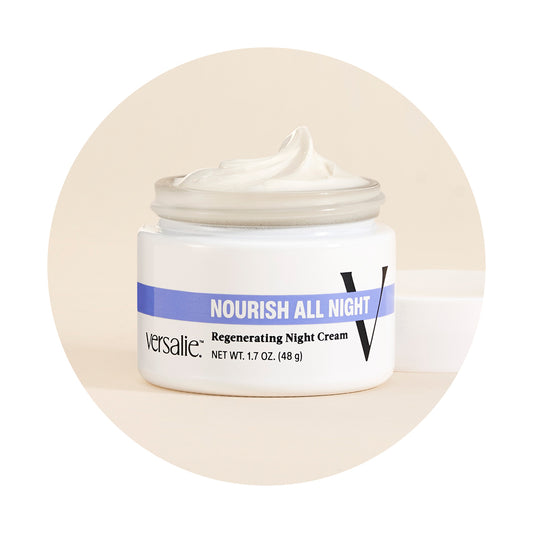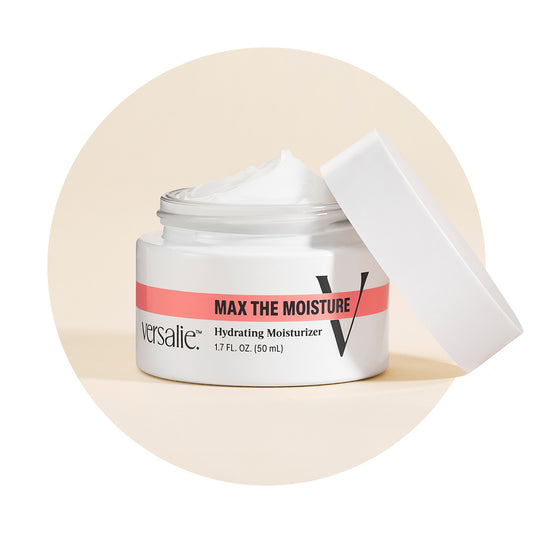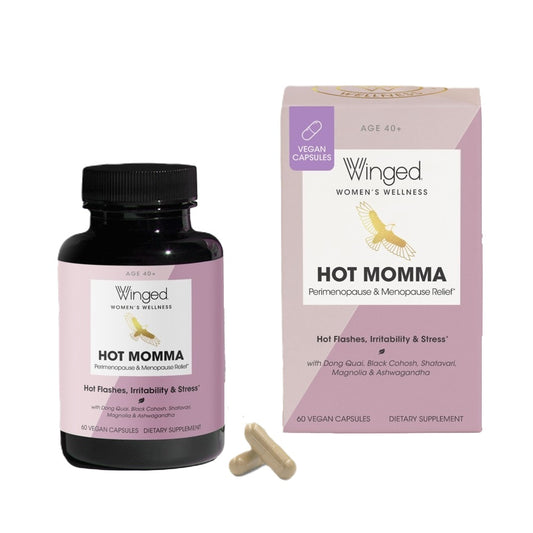Even when you’ve been expecting them, menopause symptoms can take you by surprise. Sure, you knew night sweats wouldn’t be pleasant, but you didn’t really know what it would be like some nights to wake up in a literal sweat. Or how suddenly it seemed you had to change your eating habits to maintain your weight. Or how challenging it can be to have the memory span of a guppy. And the list goes on. But while menopause’s offense might seem strong, you can play defense with this mini survival guide to help you fight back — and survive menopause. And always talk to your healthcare provider if you have any questions or concerns.
Learn what you can do to survive and thrive with some of the most common menopause symptoms.
Keep cool — How to survive hot flashes
Hot flashes and night sweats are perhaps the most talked-about menopause symptoms. Which is not surprising because it’s experienced by more than 80% of people going through menopause. The good news is there are some tips that may help provide relief before and after a hot flash hits. Some lifestyle changes that may help include:
- Wearing layers that you can pull on and off to help regulate your body temperature.
- Arming yourself with a portable fan that can help you cool off whenever, wherever.
- Keeping ice cold drinks within reach.
- Avoiding hot-flash-triggering ingredients such as alcohol and caffeine.
- Avoiding tobacco use and smoking.
- Working towards maintaining a healthy weight.
- Minimizing stress.
While lifestyle changes can increase comfort, hormone and nonhormonal prescription therapies have been shown to be more effective in managing symptoms, especially hot flashes. Talk to your doctor about whether these therapies may be right for you.

Keep your mood in control
Mood symptoms such as irritability, low mood, and anxious feelings aren’t just in your head — especially during perimenopause, when key hormones like estrogen and progesterone rise and fall. In fact, as many as 4 in 10 people experience some type of mood symptom during this time. Thankfully, there are some things you can do:
- Try to get some sleep by following the tips in the next section, but we know this isn’t always easy.
- Limit caffeine and sugar.
- Get regular exercise.
- Reduce stress with relaxing activities (such as meditation, yoga, massage, listening to music, or even journaling).
- Consider trying supplements to help with occasional mood support.
Try your best to get a good night’s sleep
Speaking of getting a good night’s sleep, easier said than done, right? Actually, no. Let’s just say a little preparation can go a long way. Start by creating a bedtime routine. Maybe that means reading, or listening to relaxing music, or taking a soothing soak in the tub. What it doesn’t mean is stimulating your brain on your mobile device. You should also try going to bed and waking up at the same time. Some other great tips include:
- Consider cognitive behavioral therapy.
- Wear light pajamas made of breathable fabrics like eucalyptus or linen.
- Stay away from big meals and caffeine close to bedtime.
- While alcohol might help you fall asleep, it also disrupts sleep, so it’s best to avoid it.
- Avoid taking naps in the afternoon or early evening.
- Try to go to sleep and wake up at the same time every day.
- Set the thermostat to a cooler, more comfortable temperature.
- Try dietary supplements to help you wind down for bed and relax.
Work towards maintaining a healthy weight
As muscle mass decreases and our lifestyle habits shift as we age, our weight may begin to increase. While we wish we could say there’s an easy antidote, the truth is, the key to losing and keeping off weight is the same as it’s always been. So, it’s worth a little reminder:
- Eat a healthy diet filled with fruits, vegetables, whole grains, and protein.
- Don’t crash or try fad diets. While you might lose weight quickly, you’re likely to gain it back even quicker.
- Stay physically active. Lift some weights, swim some laps, or even just walk a few times around the block. Aim for at least a few days a week.
- Here, too, it’s best to avoid alcohol.

Fighting brain fog
No, things like increased forgetfulness and trouble concentrating aren’t all in your head. They’re yet another result of your estrogen levels changing. Estrogen affects how the brain works. In addition, lack of sleep and mood changes (also related to menopause) can also affect memory, attention, word retrieval, and other cognitive functions. Some of the best ways to manage brain fog are to make many of the lifestyle changes we’ve just covered: a healthy diet, regular exercise, and a good night’s sleep.
One more item to include is to exercise your brain. Challenge your brain by reading, volunteering, learning a new skill, practicing a new language – to increase cognitive reserve (how flexible and efficient your brain is able to process information).
Preventing bone loss
Believe it or not, on average, we can lose 10-20% of our bone mass during the menopausal transition, which can increase our risk of osteoporosis. Perhaps even more shocking is that estimates show that 50% of women over 50 may experience an osteoporosis-related fracture. Luckily there are some things you can do to help reduce your risk, including:
- Adding more calcium to your diet. You can do this by enjoying calcium-rich dairy foods, such as milk and cheese, as well as some non-dairy foods like calcium-fortified soy or almond drinks, almonds, Brazil nuts, dark green leafy vegetables, firm tofu, and fish with edible bones (such as sardines and canned salmon). Ask your doctor whether a dietary supplement might be right for you.
- Do weight-bearing exercises, including resistance training with weights
- Keep an eye on your level of vitamin D, which helps the body to absorb calcium.
- Limit alcohol intake.
- Avoid smoking and excess caffeine.
- Stay current with bone scans, as recommended by your healthcare provider. These can detect osteopenia (bone loss that’s not as severe as osteoporosis) and osteoporosis. If you have these conditions, your provider may recommend medications to help.

Keeping your sex life alive
While symptoms of menopause like vaginal dryness, joint pain, and mood swings can certainly get in the way of romance, good communication can help keep that from happening. That means talking to your partner about what you’re going through both physically and emotionally — so they can better understand how to better support you. That includes:
- Exploring different sexual positions to find what feels good.
- Dedicating more time for intimacy and foreplay, which can help increase moisture.
- Showing affection outside the bedroom.
- Staying physically active can help fatigue by boosting energy levels and lifting your mood.
- Consider using vaginal moisturizers, lubricant, or vaginal estrogen to help protect fragile vaginal tissues. If you need help figuring out what’s best for you, discuss these options with your healthcare provider.
When it comes to menopause symptoms, the list is long. But it doesn’t have to be overwhelming. It’s all about putting yourself — your mind and your body — first, and you can live your best life, no matter your age.








